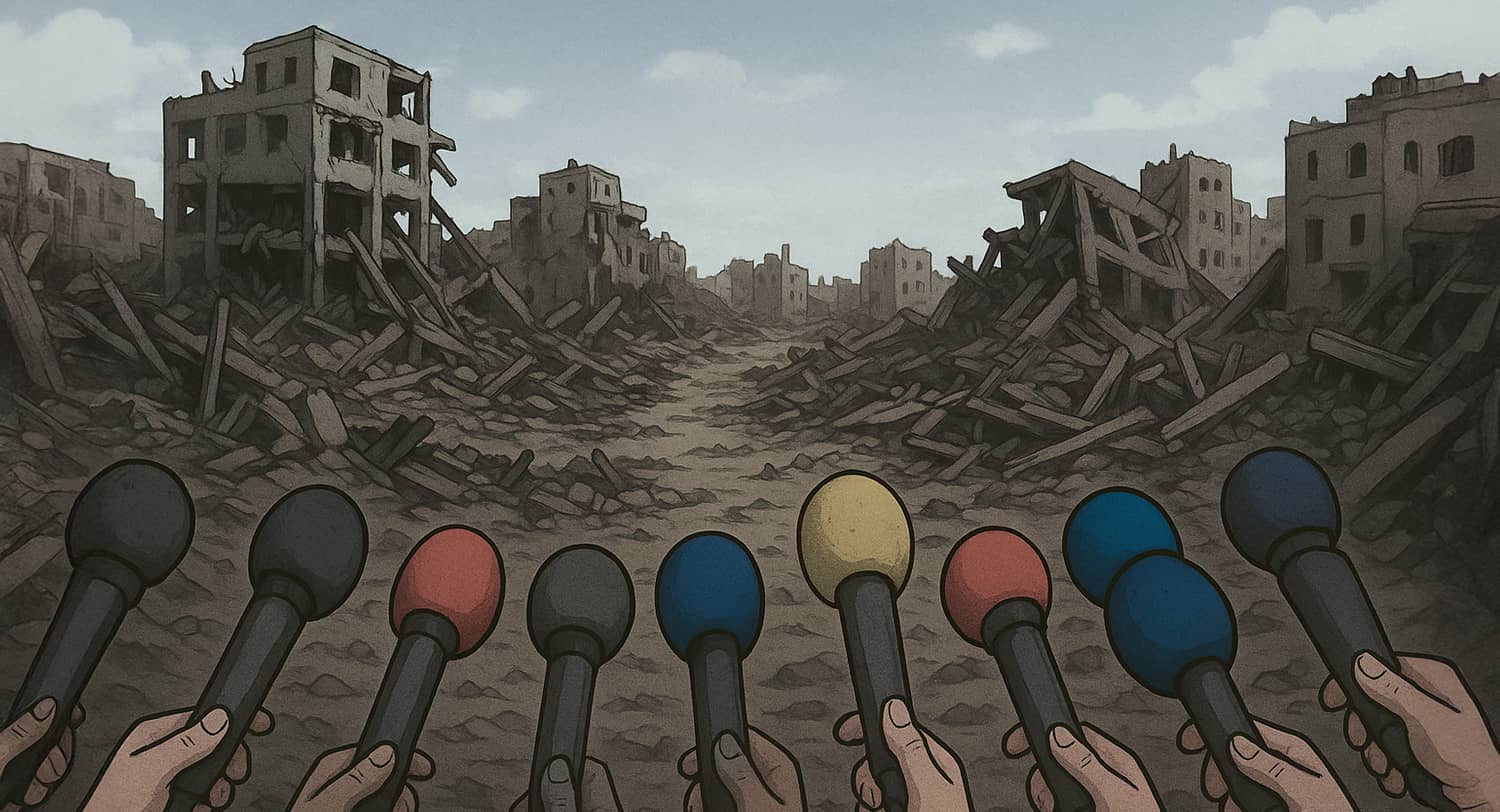Israel has begun a little-noticed foreign policy transformation. Against the backdrop of its ongoing war against Hamas in the Gaza Strip, Jerusalem has launched a new initiative in strategic communications.
The shift was borne of necessity. Historically, Israel’s international outreach has been based on the concept of hasbara [means “explanation”] – if the country were able to thoroughly explain its version of events to global publics, it would gain support. But that concept appears to be outdated in the current Gaza conflict.
Over the past twenty months, Hamas has met with enormous success in its efforts to shape the popular narrative surrounding the conflict. It has done so via exaggerated or false claims designed to discredit Israeli military operations, the proliferation of misinformation and fake videos to stoke outrage, and the adroit use of social messaging platforms to spread extremist content.
The results of this information war have been dire for Israel: a growing isolation of the Jewish state on the world stage, and a massive, ongoing focus on potential Israeli wartime excesses rather than on the atrocities being perpetrated by Hamas and other Palestinian Islamist organizations, against both the Israeli hostages and the captive population of the Gaza Strip.
Belatedly, Israeli authorities have concluded that an overhaul of their messaging is in order. Officials in Jerusalem now increasingly refer to waging a “war of knowledge” while hasbara has become something resembling a dirty word in official parlance. More concretely, and significantly, the country has begun allocating real resources to this endeavor. In March, the Israeli government for the first time passed a budget that earmarked some $150 million for public diplomacy.
In comparative terms, Israel’s $150 million does not represent a significant investment. Qatar’s popular al-Jazeera channel, for instance, boasts an annual budget of $1 billion, while the Islamic Republic of Iran officially allocated at least $600 million between 2024 and 2025 for propaganda activities. Still, for Israel, which has never fielded a public diplomacy budget of any note, it represents a major evolution.
On a recent visit to Israel, I met with officials who underscored that the government of Prime Minister Netanyahu is focusing on short-term informational initiatives. They intend to focus on select audiences – younger, already-somewhat sympathetic ones in the West – with projects that include journalist trips to Israel, privileged access to social media influencers, and other campaigns.
This tactical focus is at least partly the product of uncertainty. Israeli officials have no confidence that this year’s budget for public diplomacy will be renewed in the next governmental budget, and are therefore moving quickly to expend the current funds. What they are not doing, however, is investing in long-term capabilities – such as language services, partnerships with existing international media outlets – that would allow the country to get its message out in a sustained manner.
All this, of course, was before Israel’s recent war with Iran. That conflict has profoundly reshaped the region. Israel’s prior strategic drift in Gaza has, at least for the time being, been eclipsed by its stunning operational successes vis-à-vis the Islamic Republic. As a result, Jerusalem has managed to temporarily shift the global narrative about its power and place in the region.
Israel will inevitably have to tackle the information war in earnest. When it does, it will need more than just tactical messaging to select audiences. Rather, to survive in today’s increasingly crowded and hostile global media environment, the Jewish state will have to present an informational vision – and make the sustained investments necessary to enable it.

